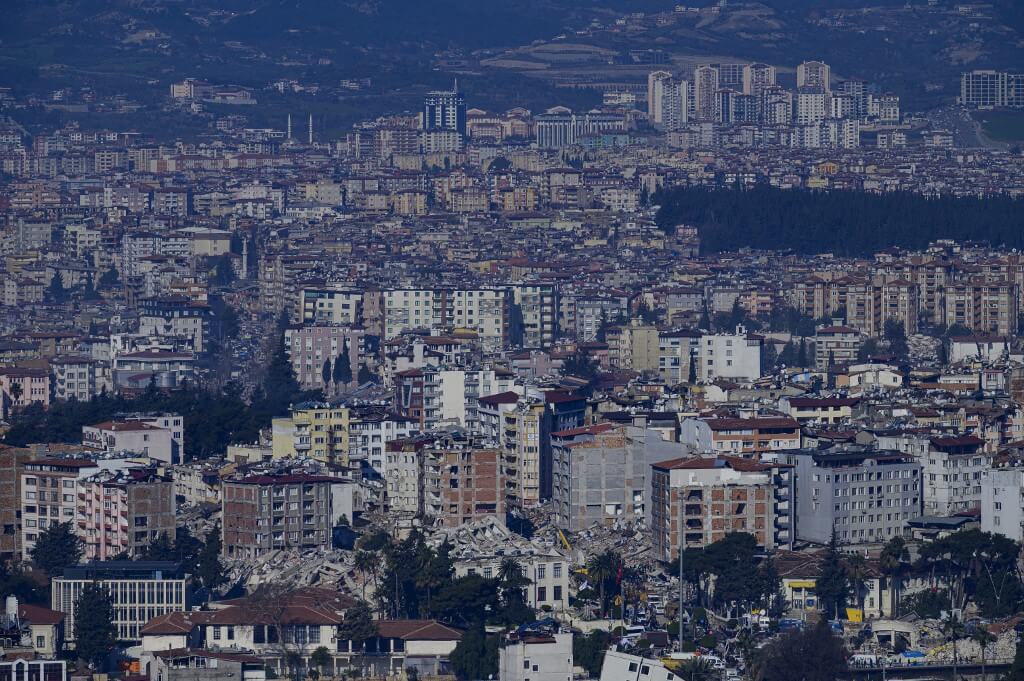Turkey has begun work to rebuild homes following this month’s devastating earthquakes, while architects and engineers warn that officials should carefully reconsider urban planning and building safety before a hasty rebuild.
A 7.8-magnitude earthquake struck near the city of Gaziantep on Feb. 6 while people were sleeping, killing more than 44,000 people in the 10 southeastern provinces hardest hit by the disaster, according to the latest official figures. The quake was followed by thousands of aftershocks, including a 7.5-magnitude temblor that shook the region later the same day.
“For several projects, tenders and contracts are done. The process is moving very fast,” Reuters quoted a government official as saying.
A presidential decree published on Friday in the Official Gazette included the Justice and Development Party (AKP) government’s roadmap for reconstruction in the earthquake-affected cities, where President Recep Tayyip Erdoğan declared a three-month state of emergency soon after the quakes.
According to the decree, transfer and urgent expropriation decisions may be taken for immovable properties belonging to public institutions and organizations and all immovable properties subject to private ownership.
The presidential decree further said expropriation would be carried out by the Ministry of Environment, Urbanization and Climate Change or the Housing Development Administration (TOKİ) and that Turkish or foreign individuals, institutions and organizations would be able to build residences and workplaces in places to be indicated by the ministry.
According to a Reuters analysis citing Esin Köymen, former head of the İstanbul Chamber of Architects, officials need to consider re-planning the cities based on scientific data and heed expert opinion about building on faultlines., instead of prioritizing hasty replacement of the demolished buildings.
Nusret Suna, deputy chair of Turkey’s Chamber of Civil Engineers, also talked to Reuters and pointed to the long process of making city plans, which might take months, and said government’s haste shows they did not take note of the disaster.
Gencay Serter, chairman of the board of the Turkish Union of Engineers and Architects Chambers’ (TMMOB) Chamber of City Planners, speaking to BBC’s Turkish service, warned that the decree neglects the importance of urban planning and could lead to the construction of houses detached from their historical context, resulting in an unsustainable life.
At least 1.5 million people have been left homeless and 500,000 new homes need to be built after the devastating earthquakes, according to United Nations Development Programme (UNDP) experts.
Environment Minister Murat Kurum announced that the construction has started for 855 houses to be built in the first stage in Gaziantep’s Nurdağı and İslahiye districts by TOKİ.
Journalist Çiğdem Toker on Friday said in a column for the T24 news website that TOKİ held at least eight tenders in the past three days for over 3,000 houses to be built in Maraş, Hatay, Gaziantep, Adıyaman, Adana and Kilis provinces at a total cost of TL 6 billion ($317 million).
More than 160,000 buildings, including 520,000 apartments, were destroyed or severely damaged in the major earthquakes.
President Erdoğan, keen to show his government will do everything for those impacted as he faces his biggest political test in elections planned for May, had promised that the houses would be rebuilt within a year.

